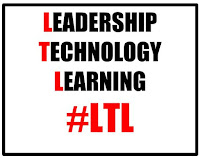Imagine a world where we focus more on effort and not as much on intelligence...what would happen?
Carol Dweck, in the late 1970s, did an experiment with 6th graders. In that experiment, she had two groups. One group strongly believed intelligence controlled success while the other felt intelligence did not control everything. This was based on an initial questionnaire that Dweck administered as part of the experiment. Those that believed that intelligence is "set in stone" were referred to as the fixed mind-set, the others were associated with the growth mind-set. Once the groups were decided, each group was given a series of questions. The first set easy, the next set much more difficult. The fixed mind-set folks started doubting themselves quickly when it came to the more difficult tasks. They began to question their own intelligence, even though just moments before they were confident of their abilities. The growth mind-set folks did not have the same difficulties...they never thought of themselves failing and they continued to work at those seemingly impossible tasks (that some completed)...why???
Dweck did a similar test twenty years later based on the same principles as before only with a focus on words. Two groups, same routine, puzzle to solve...the difference was afterwards the students were given six words of praise; half were praised for their intelligence, the other half praised for their effort. The reason for this was simple...see if words could make a difference in productivity and success. Guess what?? After the first go around, students were given another test. They were asked if they wanted the easy or hard test. Two thirds of the intelligence-praised students chose the easy test whereas 90 percent of the effort-praised students chose the hard test. The students that were praised as intelligent were "afraid" of failure and not living up to their intelligence label while the effort based folks were ready for a challenge...Interesting!!
Now, step away from Psychology for a minute and think about your own world. How many times have we know a person that has always been the cream of the crop, whether we are talking about athlete, musician, student, etc that never quite lived up to the expectations of others. Was it because their intelligence or "natural talent" was praised as opposed to the effort put into the tasks. Think back to the 10,000 hour rule...those folks that put in hours upon hours (thousands) of purposeful practice most likely did not think much about their natural talent while they were banging the piano keys, shooting free throws, or doing math calculations forever and ever, they were putting in the time...focused on effort.
I find myself doing it all of the time.."you are so smart!...That should be an easy question..." When I probably should be saying, "that is a great effort you put into that problem...you really worked hard on that task." Think about those that have low self-confidence or those that are behavior issues. When we tell them how smart they are or how talented they are or how good they are....at that moment they are good, but then reality hits. "I've got to maintain these assumptions about me...how am I going to do that!!!" That is why we see, over and over, the behavior disorder kid do great, then, all of a sudden, tank...self-sabotage. It is harder to maintain the image of an intelligent, well-behaved learner for those kids.
So is it talent? Don't get me wrong, I am still not convinced that some people aren't blessed with some special talent that allows them to jump higher, hit farther, sing better....However, as I see these studies, my eyes begin to open about the possibilities not only for my students but for ME! Hard work does matter, practice does work, diligence pays off. If I want to learn Spanish, I can. If I want to learn guitar, I can. If I want to become better at calculus as a 36 year old educator...I can! One thing I hope for is to start leaving behind the notions that talent makes a difference and start realizing that hard work, purposeful hard work can overcome those talent shortfalls.
For more on how hard work overcomes talent read...
Syed, M. (2010). Bounce: Mozart, Federer, Picasso, Beckham and the science of success. Harper Collins: New York.
Gladwell, M. (2008), Outliers: The story of success. Little, Brown, and Co: New York.
MS

